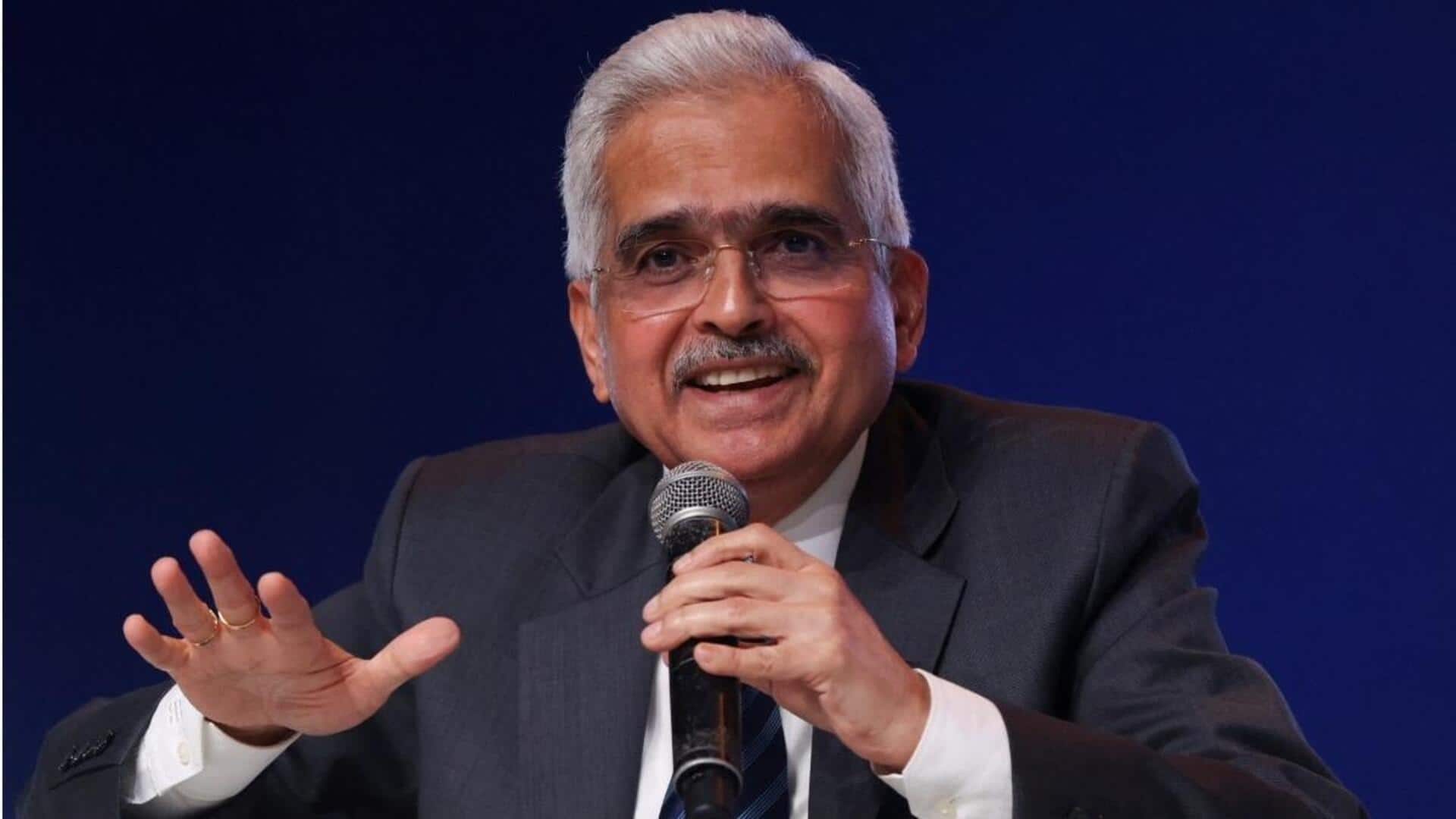
Key decisions that marked Shaktikanta Das's tenure as RBI Governor
What's the story
Shaktikanta Das, the 25th Governor of the Reserve Bank of India (RBI), has been a beacon of decisive leadership amid the worst economic challenges. Das's term started in December 2018 and ended today. Appointed in the middle of a leadership crisis at the RBI, Das quickly restored institutional harmony and stressed on collaborative decision making. His tenure has been marked by critical reforms for the banking sector and economy. Let's take a look.
Crisis management
Das's leadership stabilized NBFC sector post-IL&FS crisis
Das's leadership was key in stabilizing the non-banking financial companies (NBFC) sector, after the IL&FS crisis. The crisis had revealed deep governance and liquidity issues in the sector, resulting in a widespread loss of investor confidence. Under Das's guidance, the RBI brought measures to ensure better access to liquidity for financially sound but liquidity-strained NBFCs. The central bank also tightened regulations to improve governance and risk management frameworks of NBFCs.
Monetary policy
Implementing historic rate cuts and pandemic relief measures
Under Das's leadership, the RBI had slashed the repo rate to a historic low of 4% during the COVID-19 pandemic. This was among a series of monetary policies to support growth amid economic challenges. In March 2020, RBI allowed a moratorium on term loans and working capital facilities to offer relief to borrowers struggling with debt servicing due to the pandemic's disruptions.
Digital push
Das championed UPI and digital payments
Das championed the promotion of Unified Payments Interface (UPI) and digital payments during his tenure. Initiatives such as linking RuPay credit cards with UPI expanded payment options for the users. The introduction of UPI 2.0 introduced enhanced features like overdraft facilities and linked credit accounts for users. Later, UPI LITE was launched to facilitate low-value transactions, further increasing UPI usage in rural areas.
Regulatory reforms
Tightening NBFC regulations and overhauling cooperative banks
After high-profile NBFC defaults such as IL&FS and DHFL, Das introduced stricter regulations, bringing NBFC norms closer to those of banks to avoid systemic risks. He also undertook a major overhaul of governance framework for cooperative banks to tackle systemic vulnerabilities, especially after crises like the Punjab and Maharashtra Cooperative (PMC) Bank fraud. The RBI tightened its regulatory scrutiny over these institutions under him.
CBDC pilot
Das launched pilots for Digital Rupee
Under Das's leadership, the RBI introduced pilots for the Digital Rupee as part of the country's broader effort to explore the possibility of blockchain technology in digital payments. The Digital Rupee pilots aimed to lower reliance on physical cash, streamline payment processes, and improve efficiency of monetary transactions. Further, the adoption of blockchain technology could enhance security of digital transactions and support financial inclusion by making digital payments accessible to a broader population.
Ownership overhaul
Das overhauled private bank ownership rules and promoted fintech
In 2021, Das had unveiled new guidelines to reshape the ownership structure of India's private banks. The new norms mandated that promoters of private banks must bring down their share to below 26% within a period of 15 years. Under his leadership, the RBI overhauled its digital lending regulations to tackle rising concerns over consumer protection, fraud, and transparency in the fintech and digital lending space.
Regulatory clampdown
Tough regulatory approach toward financial entities
Das adopted a no-nonsense regulatory approach toward financial entities, when it came to adherence with rules and regulations and customer protection. Under his leadership, the central bank took unprecedented action, cracking down on several financial entities. From HDFC Bank in 2020 to MasterCard and American Express in 2021, Bank of Baroda in 2023 and Paytm Payments Bank among others in 2024, RBI took action wherever it felt that compliance was lacking or found other issues that jeopardized customers' interest.